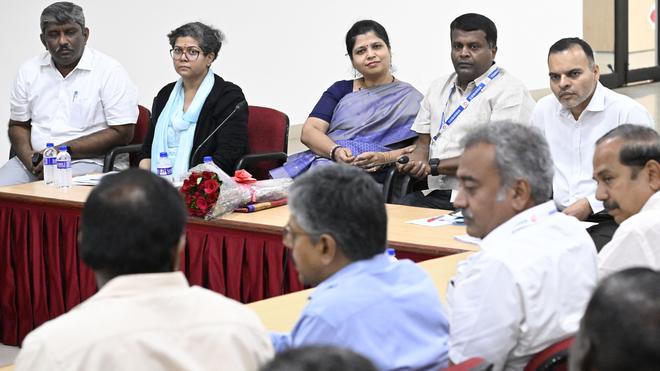
Table of Contents
MSME representatives in Coimbatore demand reduction in GST rates on products and raw materials, citing a shift to the unorganised sector and challenges for micro units.
Micro, Small, and Medium Enterprises (MSMEs) from various sectors raised significant concerns during their meeting with officials from the Ministry of MSMEs on September 10, 2024, in Coimbatore. The primary demand from these representatives was a reduction in GST rates for the products they manufacture, as higher rates have led many businesses to shift to the unorganised sector.
Impact of GST on the Pumpset Industry
According to Mithun Ramdas, president of the Southern India Engineering Manufacturers’ Association, the increase of GST on pumpsets to 18% has driven a large portion of the industry towards the unorganised sector. With the pumpset industry estimated to be worth ₹25,000 crore, the unorganised segment now accounts for nearly ₹15,000 crore, a significant rise from ₹3,000 crore to ₹5,000 crore previously.
Ramdas attributed this shift to the higher GST rates, urging the government to reduce taxes to restore balance in the sector.
Concerns of the Textile Industry
Textile mills were also represented at the meeting, with a strong emphasis on the need for raw materials like cotton and manmade fibres to be available at internationally competitive prices. Currently, raw material prices in India are considerably higher, making it challenging for Indian textile manufacturers to compete in the global market.
The mills have requested the government to intervene and ensure more affordable pricing for raw materials.
GST Issues Faced by Foundries and Engineering Industries
The Institute of Indian Foundrymen from Coimbatore, represented by K. Veluswami, highlighted a specific issue regarding the taxation of tools made for export orders. Foundries and engineering firms create custom tools based on the requirements of international clients, but these tools are often not shipped and remain untaxed before 2017.
However, since last year, GST officials have started levying an 18% GST on tools with a retrospective penalty for five years.Veluswami requested that the GST on export-related tools be re-evaluated and exempted as it was in earlier years.
Demands from Micro Units for GST Reductions
J. James, president of the Tamil Nadu Association of Cottage and Tiny Enterprises, raised the long-standing demand of micro units for a reduction in GST on job works to 12%. He also proposed a tax deduction at source for the larger industries that give orders to micro units for job work.
Additionally, James addressed the new MSME definition based on investment and turnover. He noted that most units with investments of less than ₹25 lakhs do not benefit from MSME schemes, which are largely utilized by larger enterprises. James called for a separate classification or board to better serve micro and tiny enterprises.
MSMEs Push for GST Reforms to Alleviate Industry Challenges
The MSME sector in Coimbatore has made a strong case for the reduction of GST rates on products and job works, arguing that current tax policies are harming small industries and promoting the unorganised sector. Representatives from the pumpset, textile, foundry, and micro unit sectors highlighted the specific challenges they face and urged the government to consider reforms.